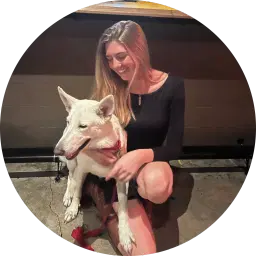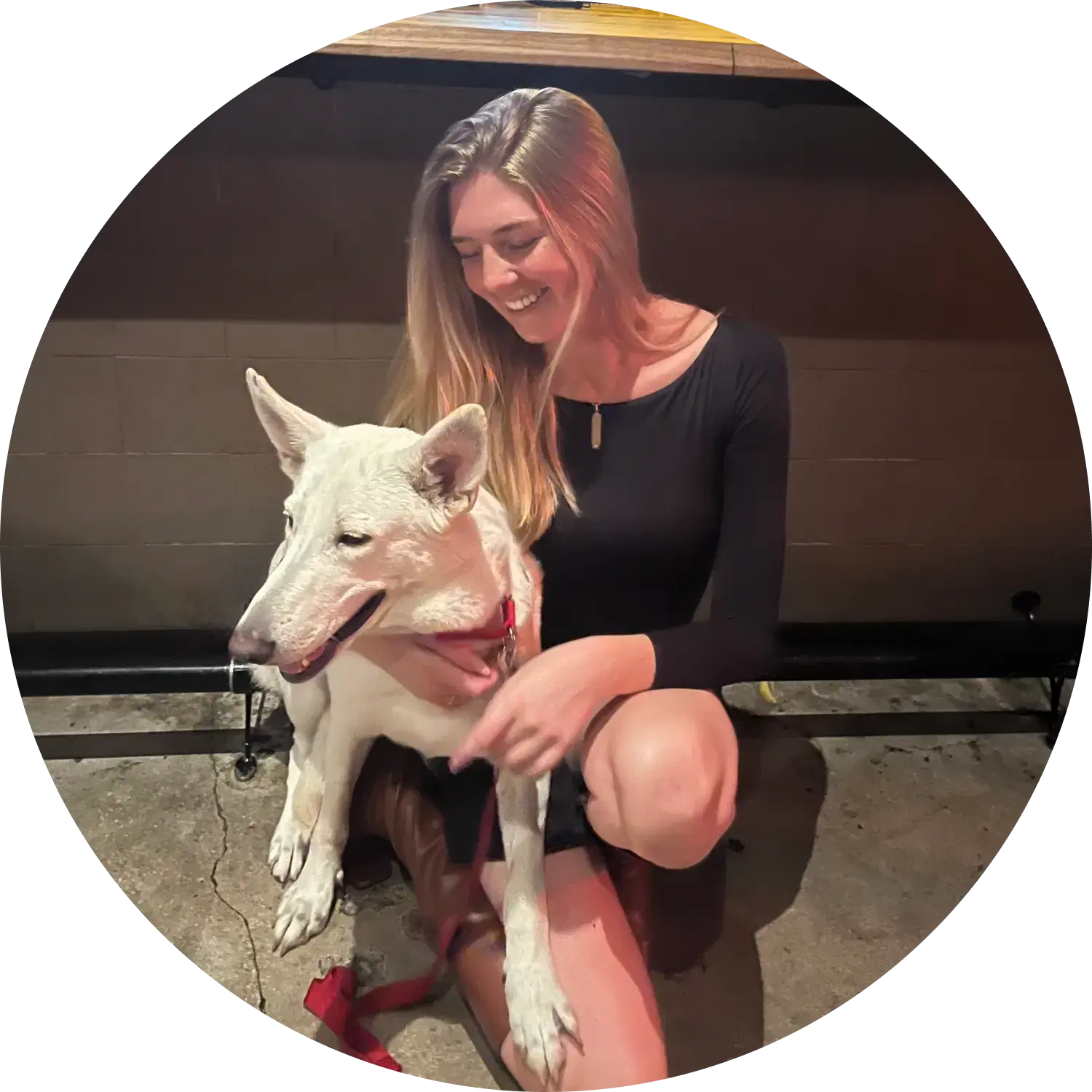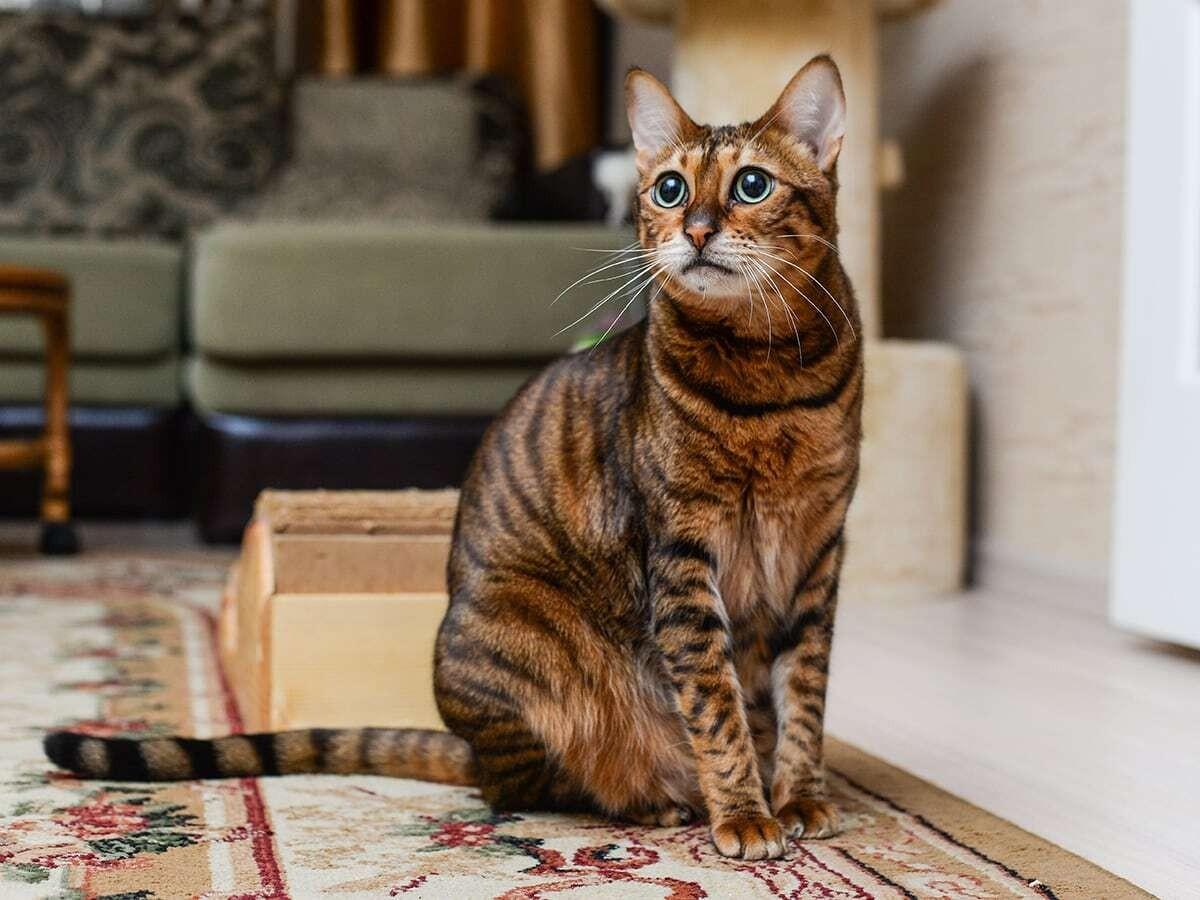Imagine a cat in its wildest form but with the sleek elegance of a domestic cat or you could go for ‘The Lion King’s’ Simba with a bit more domestic etiquette and a tendency for purring on your lap. Either way, you’ve just imagined a Savannah - a feline that looks like it just stepped out of a safari, ready to hunt down toy mice and gourmet kibble with equal ferocity.
It was on April 7, 1986, that Judee Frank crossed a male serval cat with a Siamese domestic cat and the world got its first Savannah Cat. Today, we have multiple generations of these cats depending on the parentage. These include – (4)
F1 – Ones with the highest percentage of serval DNA – 50%. They have the most pronounced wild traits.
F2 – These are bred from an F1 Savannah and a domestic cat. With 25% serval DNA, they are more domestic than F1s.
F3 – A combination of F2 and a domestic cat. They come with 12.5% serval DNA and hence a predictable temperament.
This goes on and on. Keep the formula the same and do the math for calculating the percentage of serval DNA in each successive generation.
Do Savannah Cats Make Good Pets?
So, with every successive generation of Savannah cats, the wilderness in them keeps decreasing because of the decreasing percentage of serval DNA. However, all types of these cats are known to be active, curious, and social. They bond strongly with their families. They would not shy away from exploring the neighborhood or playing in the park with you.
They are intelligent and come with truckloads of energy. The energy part can be an issue at times, especially if there are infants in the house. You can go for a lower generation in that case. They can even be taught tricks and be trained to walk on a leash.
Overall, Savannah cats can be amazing companions if you choose the right generation depending on your lifestyle.
Why are Savannah Cats So Big?
Savannah cats are actually considered to be a medium sized breed. If you think of them as wild cats, you can even call them small cats. But by domestic standards, they can be pretty big. The credit here goes to their serval genes. Servals are medium-sized wild African cats known for their long legs, large ears, and overall larger body structure.
As you go down generations, the size of these cats seem to reduce. However, by domestic standards, they can yet appear to be not that small. (1)
Are Savannah Cats Expensive?
The wilder your choice, the higher the price. F1s are the most exotic generations with the maximum amount of serval genes. They can be priced at as high as $25,000.
As you go lower, the price decreases and so does the rarity. Typically, Savannah cats from generations F3 and beyond can cost you anywhere between $2000-$5000 depending on the breeding quality. While this price band is much lower than that of F1s, they are yet more expensive than many other cat breeds out there. (2)
What are the Disadvantages of a Savannah Cat?
There are no disadvantages of owning a Savannah cat per se. However, there are some conditions that make it a little difficult to own and maintain them. These include – (3)
Space – F1 or F8, all the generations of these cats have some amount of wild genes and hence the tendency to run, jump and explore all around. This calls for an ample of space in the house without which they may feel restricted.
Maintenance – More than money, the high maintenance part here is about the attention and time you’ll have to devote to them. They need a good amount of physical and mental stimulation throughout the day. A lack of it can cause them to display destructive behaviors.
Expensive – You just read the cost of a Savannah cat. We can’t really call it cheap.
Permissions – While the African wild cats are illegal to own, even some generations of the Savannahs demand permits from the governing authorities (especially the higher generations)
Prey drive – Having small pets like hamsters or birds in the house can be challenging with a Savannah along as they’ve retained some amounts of prey drive from their wild ancestors.
More About Spot Pet Insurance
These beautiful feline babies are strong and healthy but are yet prone to certain medical conditions during their lifetime. These include – (4)
Progressive Retinal Atrophy
Pyruvate kinase (PK) disease
Hypertrophic cardiomyopathy (HCM).
Apart from these, they are also prone to accidents and injuries because of their high energy levels and the tendency to explore the entire world around them.
Don’t worry if you’re about to get one home though. We can cover up to 90% of all the costs related to the treatments and much more for you.
With a Spot accident and illness plan, you can take your cat for treatment at any licensed vet in Canada or the U.S. Spot plans don’t have networks, so whether you’re home or traveling within the U.S, veterinary services your cat receives for the diagnosis, treatment, or management of eligible services can be covered. Spot’s accident and illness plans can help cover a variety of conditions, ranging from broken bones and bite wounds to behavioral conditions, and cancer. While base plans do not offer coverage for preventive care services, Spot’s Wellness Riders can be added to any base plan for an additional fee and can help cover the eligible costs of wellness exams, vaccinations, dental cleanings, and more!
Learn more about cat insurance or get a free quote!

The resident animal enthusiast at Spot. I have a lifetime of pet parent experience. If it has fur, feathers, or scales, I’ve probably shared my home with it. I aim to be a reliable source, blending experience with a dedication to the well-being of pets.
1. Wikipedia contributors. (2024, April 28). Savannah cat. Wikipedia. https://en.wikipedia.org/wiki/Savannah_cat
2. Gardner, L. (2024b, June 6). F1 Savannah Cats: Are They Legal & Savannah Cat Price. https://www.litter-robot.com/blog/f1-savannah-cats/#:~:text=This%20domesticated%20wildcat%20comes%20at,for%20between%20%241%2C000%20and%20%2420%2C000.
3. Savannah Cat Breed Overview. (n.d.). https://basepaws.com/cat-insider/savannah-cats-breed-overview-and-key-traits
4. Anderson, B. (2022, August 4). What to know about a Savannah cat. WebMD. https://www.webmd.com/pets/cats/what-to-know-about-savannah-cat












